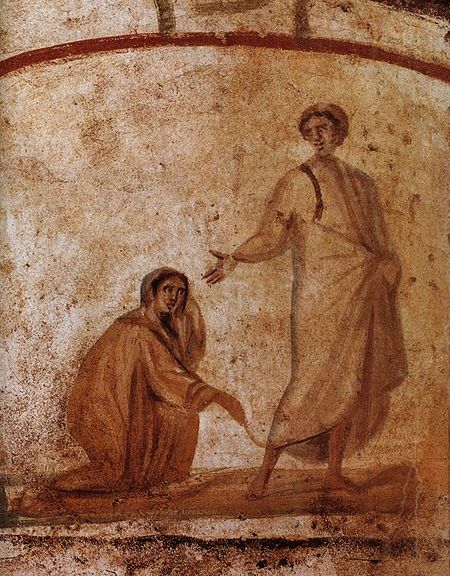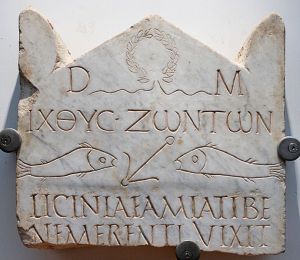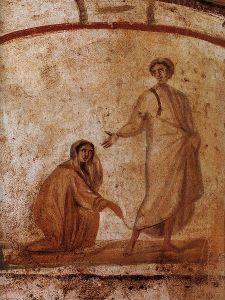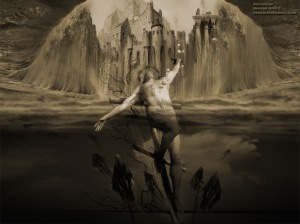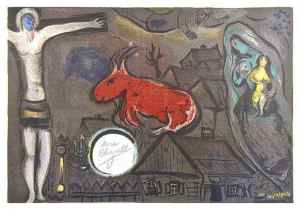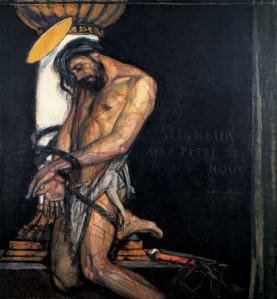The last time I wrote a blog post was the beginning of 2019. God, that feels like an eternity ago. Since then we’ve come through over two years of a global pandemic, gas prices have risen from around a buck fifty to 2.32 a litre (!), there’s a war in Ukraine that may or may not spill into a global conflict, and I’ve changed jobs three times. Wild.
This blog won’t be about much of that (probably). In the past I’ve used this space for general theological musings and occasional media reviews; this time, I’m not sure – but one of my goals is to read more this year, and this seems like a good spot to reflect on what I’m reading. My work has taken me back into the Spiritual Care space, working with marginalized communities in an interfaith and intersectional setting. As someone who has held faith as very important, but has also become increasingly disillusioned with Evangelical Christianity, this is both an exciting and difficult space to work in. On one hand, I’m glad to be working in an area where I can help bring hope and light to people, and to be working alongside people from a variety of faith traditions. On the other hand, I do still believe that Jesus had something important and unique to say. Holding on to the importance of Jesus in an interfaith setting is a unique challenge, both personally and professionally.
Enough about me. Today I’m reviewing what is, somewhat embarrassingly, the first book I read this year: Jesus and the Disinherited, by Howard Thurman. First published in 1949 and written by a black man, this is an extraordinary little book. Well ahead of its time, it outlines exactly why segregation was (is!) such a great sin. Thurman speaks from his experience as a black man, and therefore a marginalized man, and speaks to other marginalized people.

Thurman organizes the book around the themes of fear, deception, hate and love. Reading this book was a challenging experience for me. I have worked in the margins for most of my career, but am not myself a marginalized person. I am an educated white male. I have good credit and a stable income. I am incredibly privileged, especially in comparison to the majority of people that I work with. Coming from a place of privilege, I have been taught to remember my lived experience and to be aware that I am, in many ways, an outsider. When I began this book, I honestly expected Thurman to speak to me as a privileged white person, and to give me some ideas on how to check my privilege and engage with the marginalized (whom Thurman calls the disinherited, a fantastic term) on a more equal footing. And while Thurman does do this on occasion, he is more concerned with speaking directly to the disinherited themselves.
The problem with reading a book which is not directed at you is that it is easy to come away with the wrong conclusions. In this case, as a white male, it would be very easy for me to come away from reading this book thinking ‘Well, if the disinherited would simply follow Thurman’s advice the world would be a better place!’ But Thurman is speaking as a black man to black people, and indeed marginalized people of all ethnicities; he is not speaking to me. And if I were to take this book and use it as a weapon towards marginalized folk I would be perpetuating the very sin that Thurman stands against. His does not let the marginalized off the hook, it’s true – his words around relinquishing hate towards the oppressor and embracing the forgiveness of Christ are, I’m sure, hard words for any marginalized person to hear; but it is also not for me to decide what a marginalized person should or should not do. Correction must come from within the community, from someone who has lived the experiences of marginalization and found a path through the degradation of the oppressor.
In this way the community I serve has more in common with Jesus than I do myself. Thurman places Jesus in the socioeconomic climate of his day and age – namely, Roman-occupied Judea. He outlines the different types of enemies that the Jews faced in first-century Palestine – enemies from both within the Jewish community and from outside of it. Thurman shows Jesus as a marginalized person within his context; an occupied Jew, a witness to violent revolutions that were violently put down by the Romans, a member of a religious group which held as a prime tenet the refusal to bend the knee to any other so-called god. And from this context Jesus calls his marginalized brothers and sisters to pick up their crosses, to go the extra mile, to love the enemy unconditionally. This is not something I can ask my community to do. As a white man, it would be evil to say to a marginalized person ‘well, just bear the weight, man. I can’t promise it’ll get better but it’s the best thing for your soul’. This would be the height of oppression.
So reading Jesus and the Disinherited puts me in a unique place. I agree with almost everything that Thurman writes, but I also know that I must only apply these writings to myself, and no one else. Thurman himself writes that ‘[i]t ill behooves the man who is not forced to live in a ghetto to tell those who must how to transcend its limitations.’ So while I agree in theory with Thurman that the marginalized must be willing to give up their hate of the oppressor, as a member of the oppressing group I cannot give that message. This has been the problem with missionaries and do-gooders for centuries; they enter into the marginalized or oppressed space, tell the disinherited to cheer up, believe in Christ, and love one another; and then they leave, back to their comfortable and downright opulent lives. And even if they don’t return, even if they are some of those few missionaries who dedicate their entire lives to one community, they still have the option of returning, an option that those they serve never have.
I feel this burden. I go home every night to my comfortable house and my 65″ TV. I take weekend trips up the coast. I take vacations. The community that I serve can afford none of these. The community that I serve live in tents and on mats and in literal warehouses that have been converted into sleeping ‘pods’ and in old rundown hotels. They have no option of vacation, no break from the day-to-day struggle for survival. No amount of well-wishing or justifying their circumstances changes this. I am and always will be an outsider, unless I lose everything and move into a shelter.
The problem is that the message of Jesus is inherently tied to the one bringing the message. As the great Canadian philosopher Marshall McLuhan said – the medium is the message. Jesus brought by a white man looks like a white man. Jesus contextualized by western capitalist society looks like a western capitalist. And herein lies the problem: How do I share a faith that is so important to me in a way that allows the receiver to contextualize that faith for themselves? Bible College didn’t prepare me for that one. I was taught mostly by white men and a couple white women. I value my education, but there again, the context of the one teaching directly impacts the message.
So while I value Thurman and the peek behind the curtain of the disinherited, ultimately this book is not for me. It is for the disinherited. Thurman speaks into their experience in a way that I never can. As such it is a humbling book for me. It shows me how limited my perspective is, and how much privilege influences everything I do. This was not an encouraging book for me, but it was a necessary one. I have much work to do, but my work is internal, not external. I will continue to serve, but I serve from a place of deep humility. I serve to learn and to listen. I serve to watch and bear witness. I serve to perform penance both for my own actions and the actions of my class and race.


